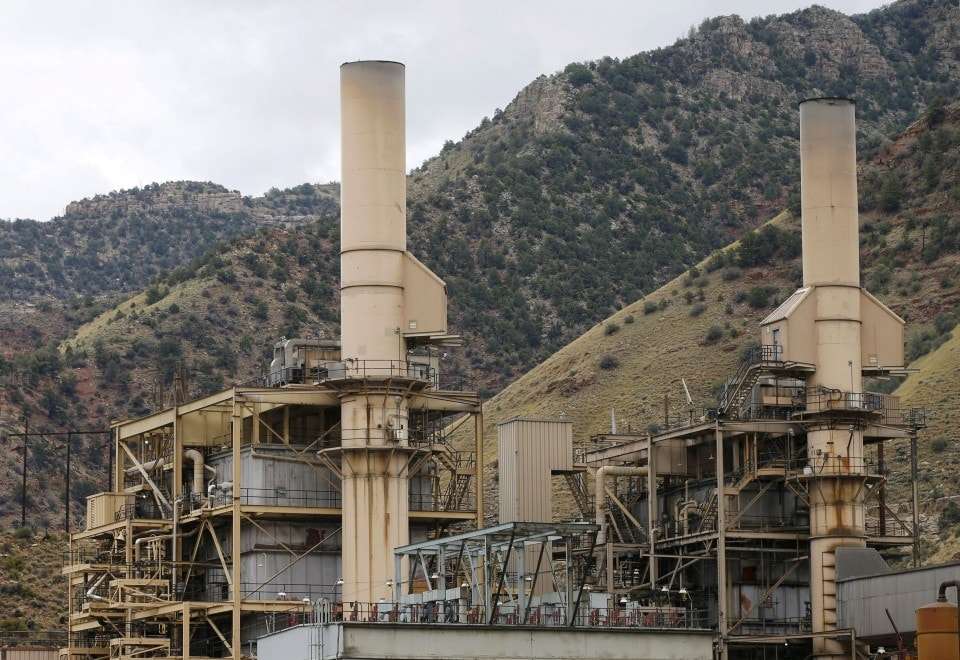The Volokh Conspiracy
Mostly law professors | Sometimes contrarian | Often libertarian | Always independent
The en banc D.C. Circuit meets the Clean Power Plan

On Tuesday, the U.S. Court of Appeals for the D.C. Circuit, sitting en banc, heard oral argument in West Virginia v. EPA, the legal challenge to the Environmental Protection Agency's Clean Power Plan. With 10 judges participating, the argument lasted seven hours and spanned a wide range of constitutional, statutory and procedural arguments about the validity of the rule. Here are some early reports on the oral argument from the Brookings Institution's Philip A. Wallach and the The Post.
The case has attracted so much attention because so much is at stake. The Clean Power Plan is arguably the most ambitious regulatory initiative in the EPA's history. It is also the central component of the Obama administration's climate change policy. I summarized some of the legal arguments and sought to place the Clean Power Plan in context here.
Much commentary on the case stresses the ideological makeup of the D.C. Circuit. Of the 10 judges hearing the case, four were nominated by Republican presidents and six were nominated by Democrats, including four who were put on the court by President Obama. Thus the National Law Journal noted the arguments put "Obama's D.C. Circuit legacy on display" and ThinkProgress's Ian Millhiser, perhaps more cynically, quipped that "It's nice to have math on your side."
There's no question that a judge's judicial ideology generally tracks the party of the nominating president and that a fair number of cases present legal issues that are close enough that judicial ideology controls the outcome. Most cases before the D.C. Circuit are decided unanimously, as it is clear which side has the better legal argument. This case, however, presents several difficult issues, and it's certainly possible that some of these issues could split the court along partisan lines.
This is not the first time the D.C. Circuit has been called on to consider the EPA's aggressive use of its existing Clean Air Act authority after legislative initiatives failed. Among the Bush administration's primary environmental policy initiatives was to reform the Clean Air Act. Though there was widespread agreement the law needed to be updated, Congress and the White House could not agree on how to do it, and the legislative reforms went nowhere.
Much like the Obama administration, which called upon the EPA to act administratively after Congress refused to enact climate legislation, the Bush administration urged the EPA to use existing statutory authority under the Clean Air Act to achieve much of what new legislation would have accomplished. These measures, some of which would have made for good policy, involved adopting quite aggressive and creative readings of the EPA's statutory authority.
Unsurprisingly, many of the Bush EPA air pollution regulations were challenged in the D.C. Circuit, and many of them failed. Although a majority of the D.C. Circuit's judges had been Republican nominees, the court keenly scrutinized the Bush EPA initiatives. Time and again, the court had little trouble turning away those measures that exceeded the agency's statutory authority or otherwise violating the act.
Will Obama's D.C. Circuit nominees give the Clean Power Plan the same degree of scrutiny that GOP nominees gave to the Bush EPA's air quality initiatives? One can hope. Some of the early reports indicate that several Democratic nominees posed tough questions to the attorney defending the EPA. At the same time, these reports suggest that the GOP nominees did not readily accept every attack levied against the plan. There's good reason for this. While some of the more expansive arguments against the CPP lack merit (such as the claim that the regulation amounts to unconstitutional commandeering), some of the statutory and administrative law objections are quite strong.
In all likelihood, it will be several months before the court will decide this case. We'll be lucky to see a decision before Christmas. When a decision arrives, we should hope for a careful, methodical and principled application of relevant precedent, with due recognition that the leeway given to EPA here will be enjoyed by the agency in future administrations. We should also hope that not every issue is decided 6-4.


Show Comments (0)